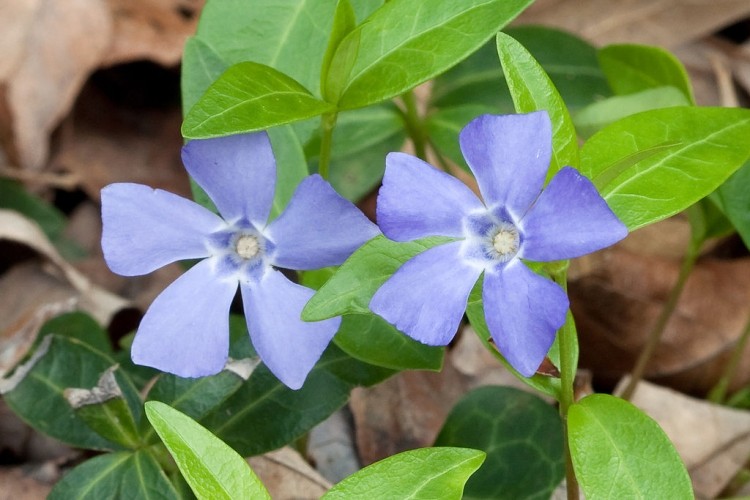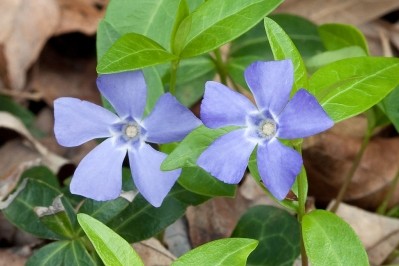Linnea requests FDA to withdrawal vinpocetine notice

The Swiss company currently supplies over $1 million of the ingredient to the US market every year, “supporting numerous jobs throughout its customer’s supply chain”, said the company in comments to the FDA submitted by Marc Ullman, of counsel at Rivkin Radler LLP.
The comments note that there is no basis for FDA’s position that, as a synthetic compound, vinpocetine cannot be considered a dietary ingredient, and should FDA take such a position then it would then mean the Agency would have to act against other such NDI decisions, like, for example, the 2001 decision for Roche Vitamins that “Roche synthetic zeaxanthin is identical to natural zeaxanthin”.
Five (5) NDINs
Vinpocetine, a compound positioned for brain health formulations, is derived from vincamine obtained from the lesser periwinkle plant (Vinca minor L.) and there is evidence to support its role as a vasodilator – or increasing blood flow to the brain. It’s being investigated as a drug in many countries but is not permitted as a pharmaceutical in the US, instead being sold as a supplement.
Vinpocetine is considered a new dietary ingredient (NDI) after the FDA acknowledged notifications in the late 1990s from Amrion Inc (1997), Leiner Health Products (1998 & 1999), GNC (1999), and Pharmavite (1999).
Some of Linnea’s comments to the FDA echo statements submitted by Senator Orrin Hatch in a letter to FDA Commissioner Dr Robert Califf, which called for a “complete and thorough economic impact analysis”.
“As noted by Senator Hatch and as reflected by Linnea and its customers’ investment in vinpocetine, it appears that the required cost-benefit analysis has not been conducted in connection with FDA’s contemplated action,” state the Linnea comments.
In its conclusions, Linnea requests the agency to withdraw the tentative conclusion that vinpocetine cannot be used as a dietary ingredient.
“In the alternative, given the unique circumstances of the Agency’s tentative decision and the absence of any expressed concerns regarding consumer safety, Linnea respectfully requests that FDA allows for a reasonable time to comply with the agency’s new conclusion about vinpocetine, if and when it finalizes its reversal on the status on vinpocetine in accordance with the requirements for reasoned agency decision-making.”
FDA’s stance
Despite the five positive NDI notifications for the ingredient, FDA announced on September 7, 2016 that it has initiated a proceeding to take vinpocetine off the market despite a number of successful NDI notifications filed on the ingredient.
FDA’s tentative decision that vinpocetine is not a legal dietary ingredient hinges on two factors:
- FDA said a search of its files reveals that the ingredient was the subject of an Investigation New Drug application in 1981 and that multi-center trials on the substance were conducted in the mid-1980s. Under Federal law a compound can first be marketed as a dietary supplement and then developed into a drug, but not vice versa, so an IND filing pre-empts a supplement application. One view of this provision of the law is to protect the huge investment that pharmaceutical companies must make to bring new drugs to market;
- Vinpocetine is synthetic. Since the release of the first NDI draft guidance in 2011 and re-released in updated form just a few weeks ago, the agency has taken the tack that bioidentical compounds, or so-called ‘synthetic botanicals’ do not qualify as dietary ingredients because synthetic compounds, even if they are identical in all respects to their botanical progenitors, did not themselves arise from plants and therefore don’t meet the definition of a dietary ingredient. “Vinpocetine is not found in V. minor, Voacanga, or any other botanical, but rather is a synthetic derivative of vincamine or tabersonine,” the agency said.
Speaking at the recent Council for Responsible Nutrition’s Annual Symposium for the Dietary Supplements Industry, Steven Tave, Acting Director of the FDA’s Office of Dietary Supplement Programs, explained that the Agency has just published an announcement looking for information about vinpocetine. “If it’s not a legal dietary ingredient, what do we do next? We didn’t do an enforcement action, didn’t issue any warning letters, demand any recalls. If it came to us today, it probably wouldn’t get acknowledged, so is there information out there that would change that position?” he asked.
“If it does hold that’s it not an NDI (and we realize we received 5 notifications in the 1990s and companies made business decisions based on those notifications) then what do we do?” he said. “We’ve gone slowly deliberately.”
Editor's Note: The original version of this article stated that Linnea would consider withdrawing from the US market if the FDA ultimately decides against vinpocetine, as stated in the comments submitted by the company to the Agency. A spokesperson for the company confirmed that Linnea remains fully committed to the US market. NutraIngredients-USA apologizes for the confusion caused by the original headline.















